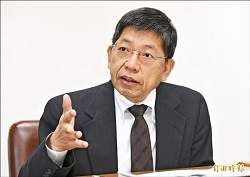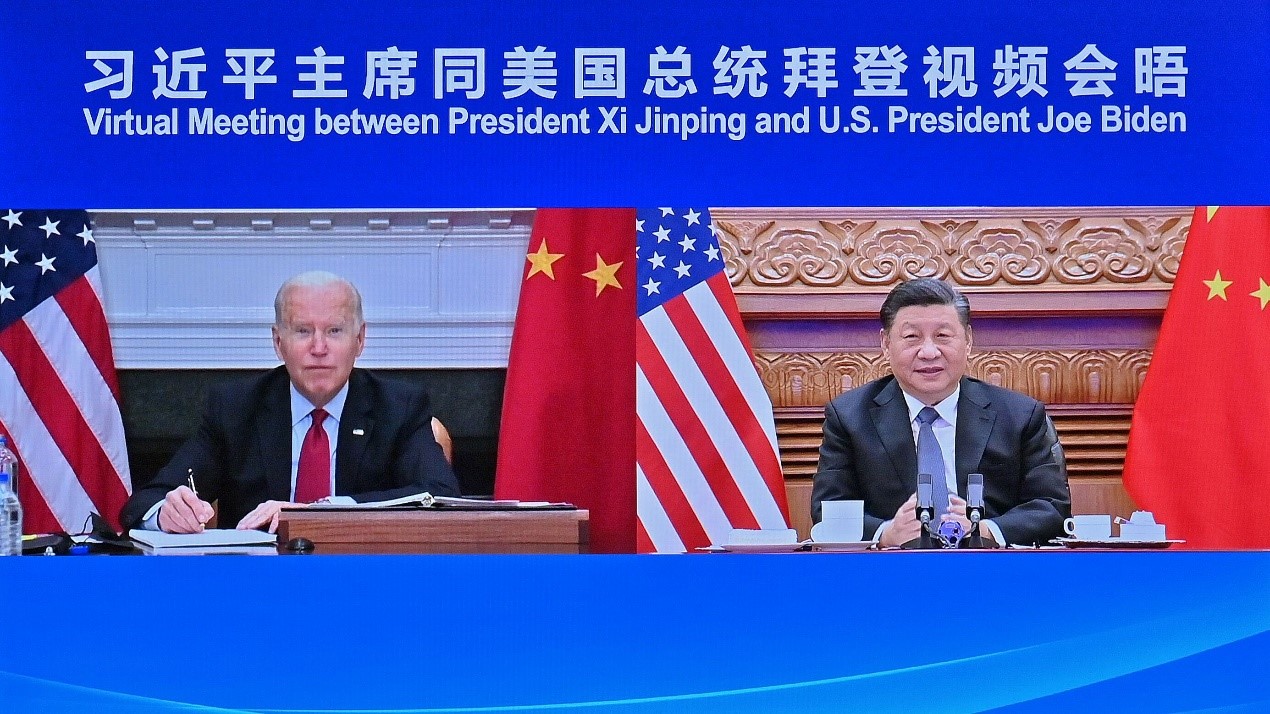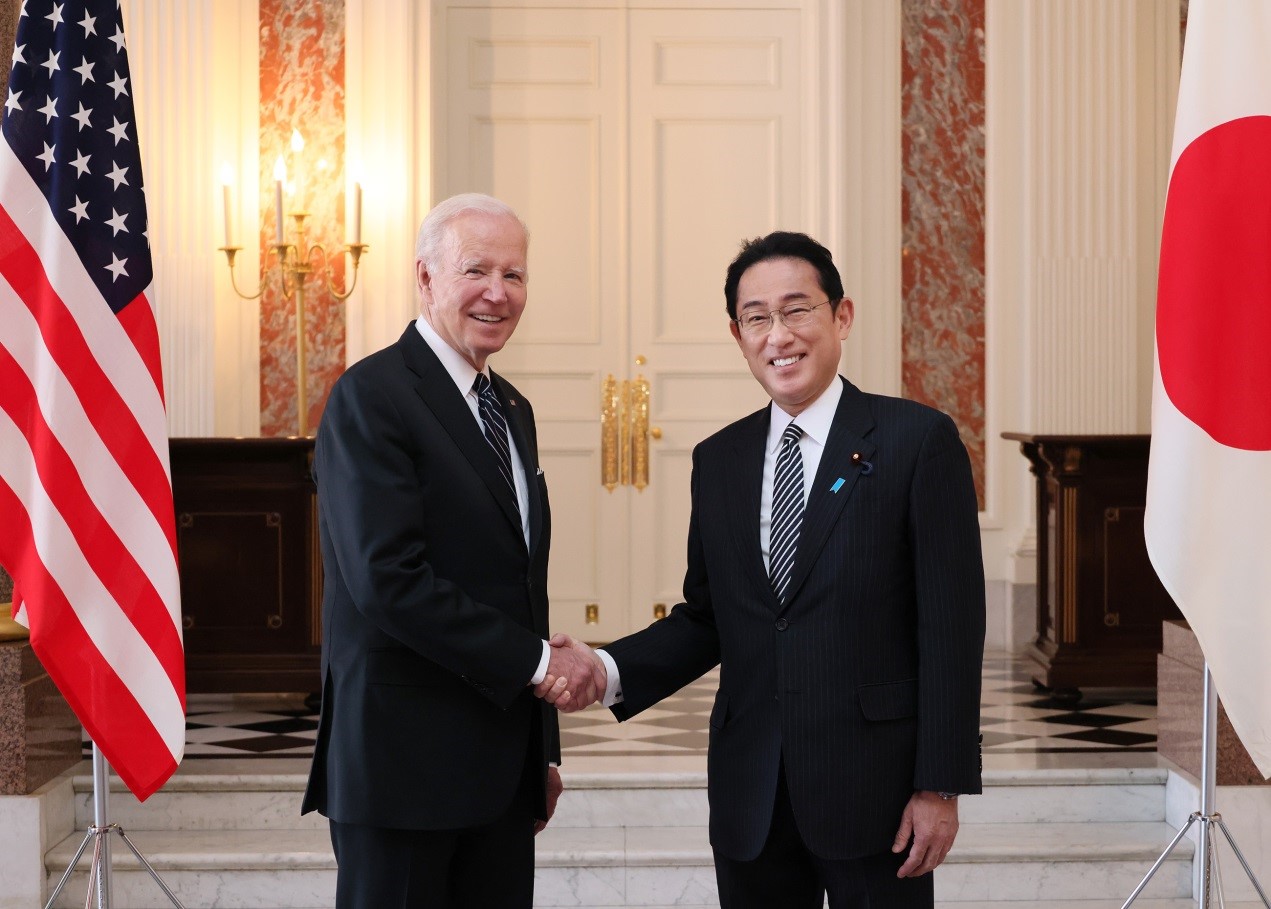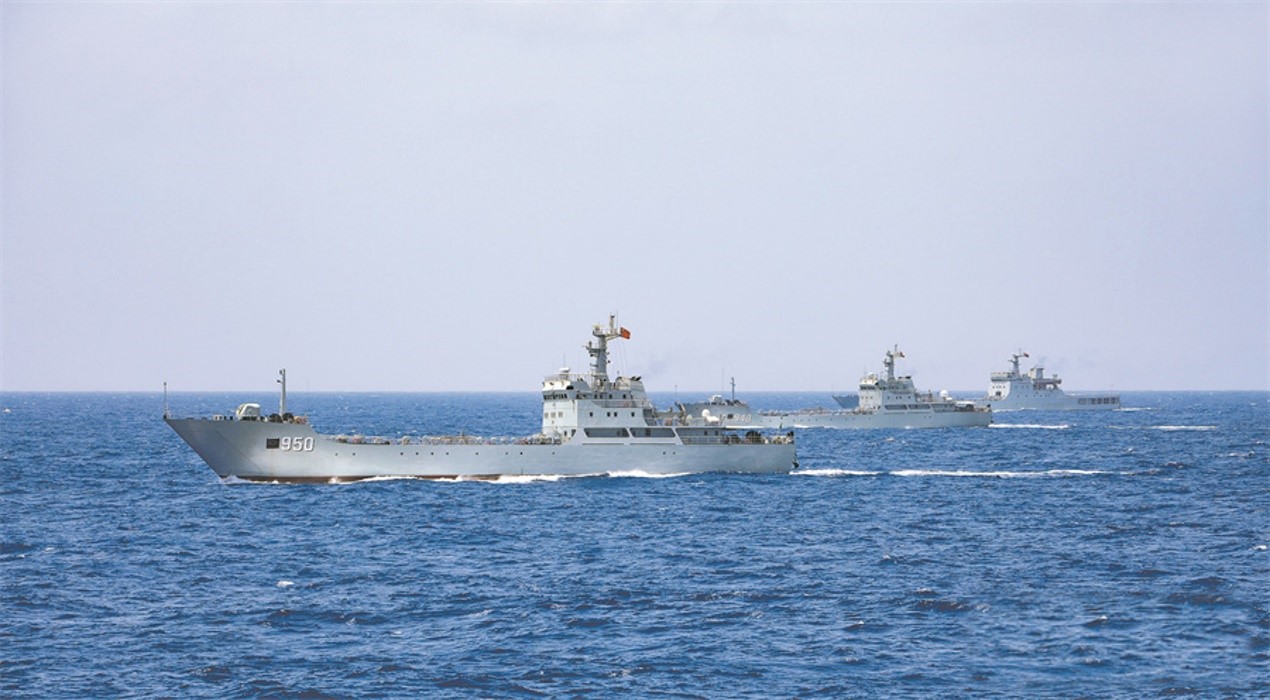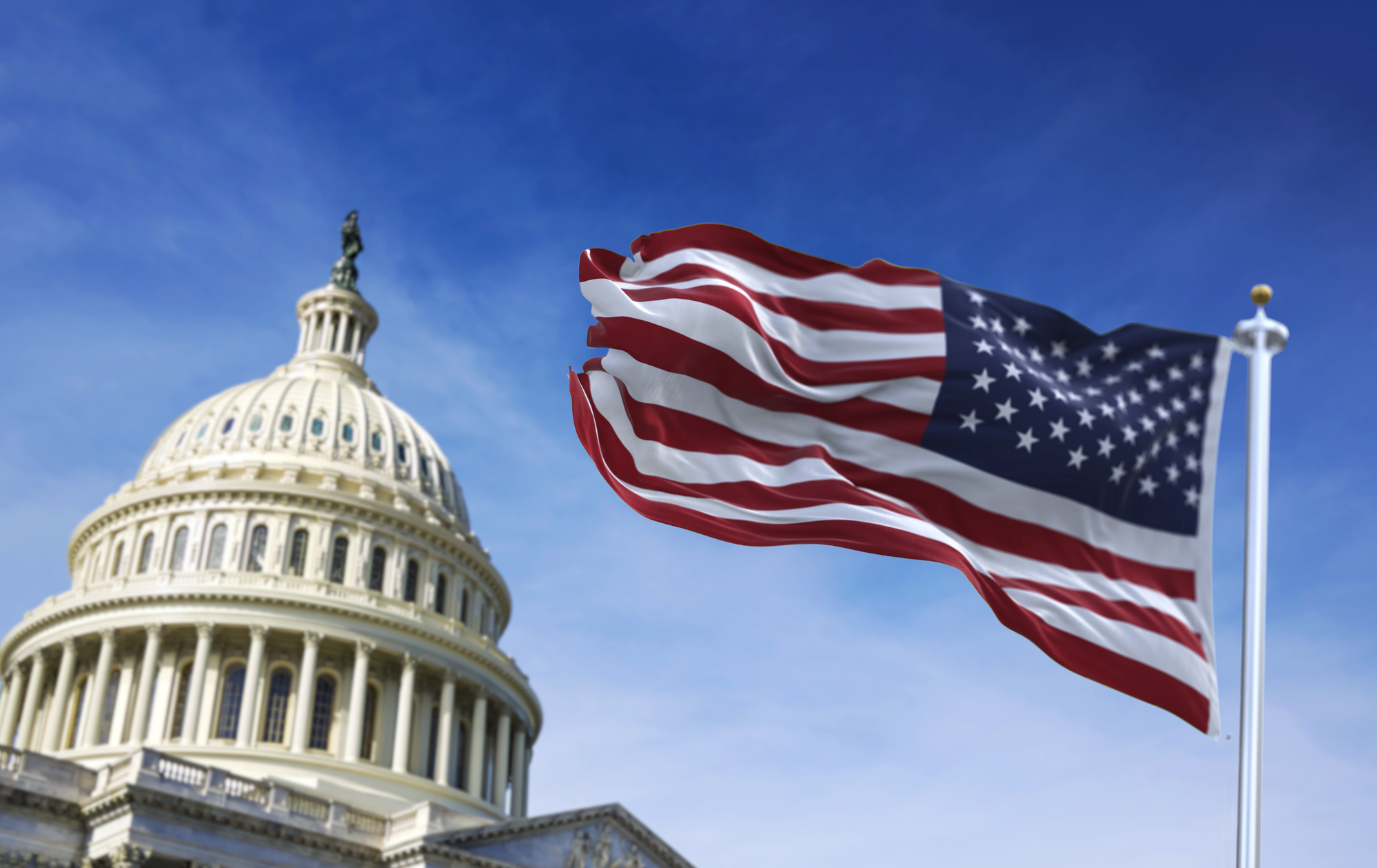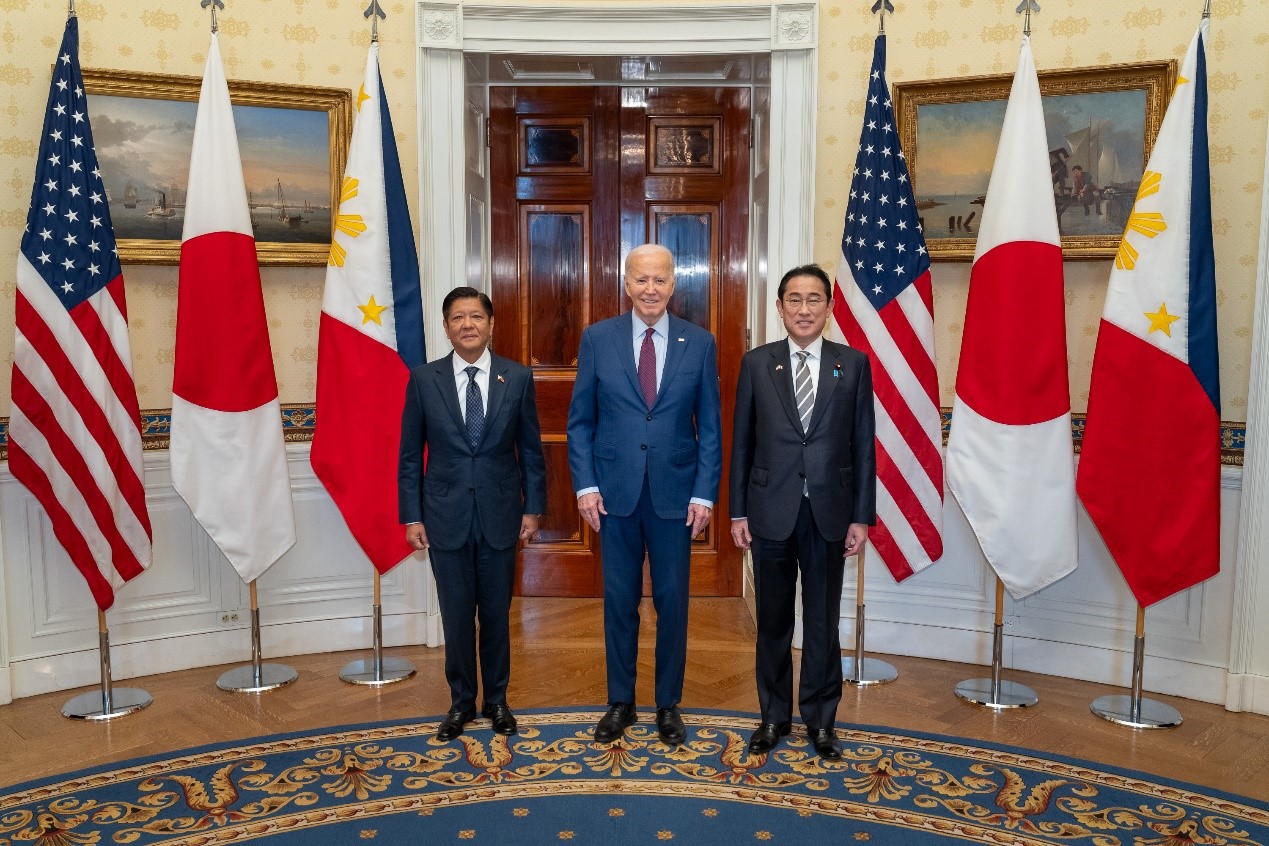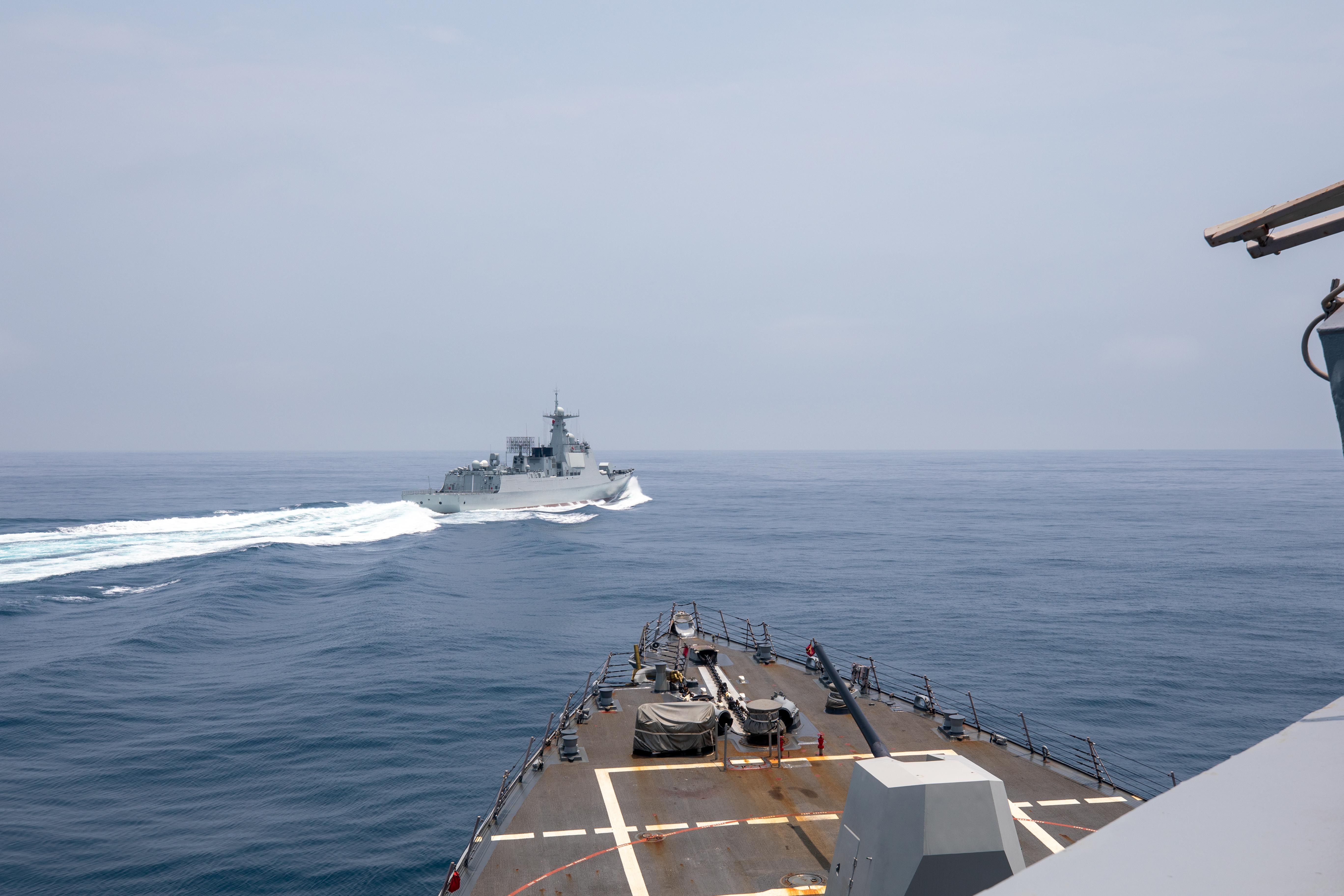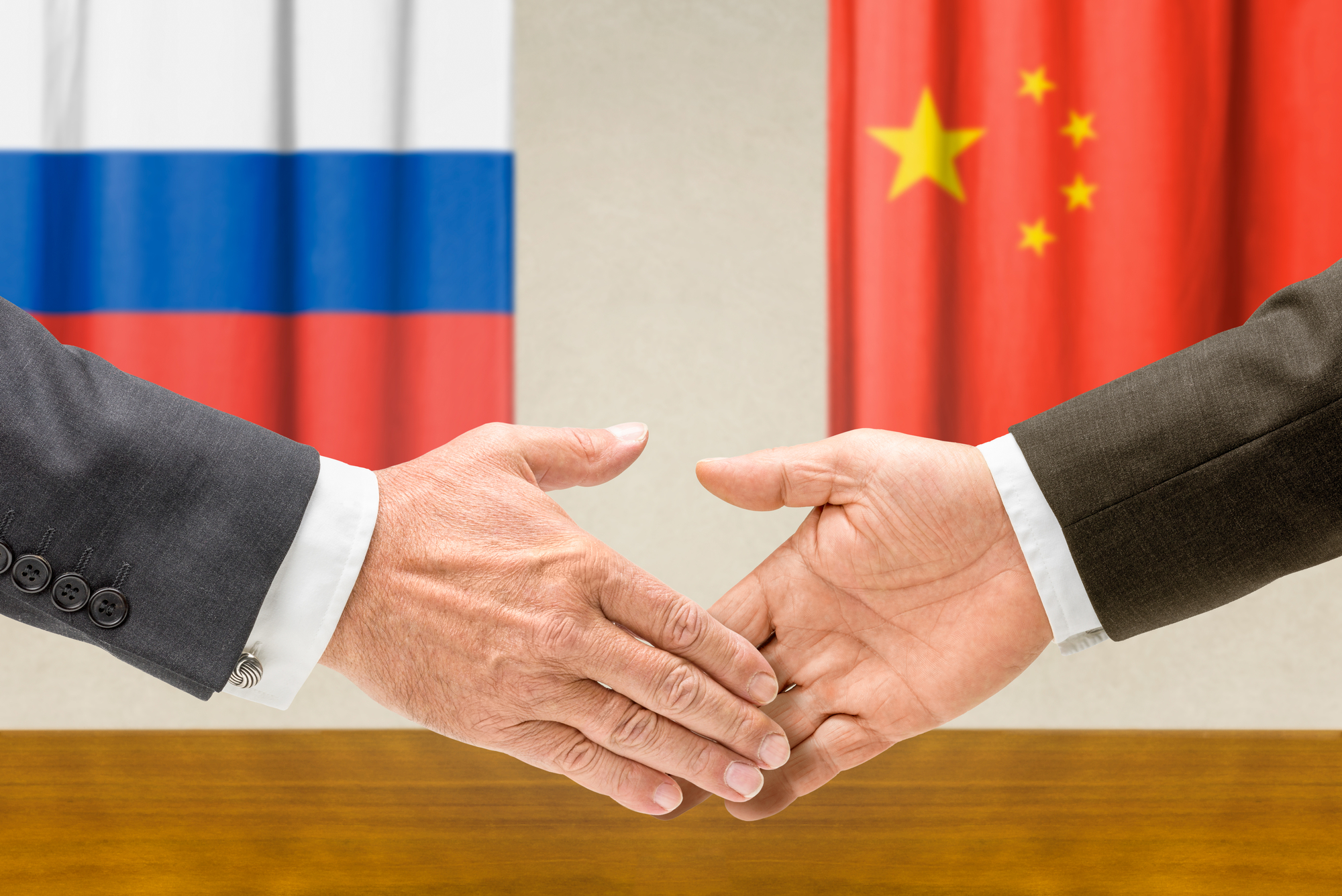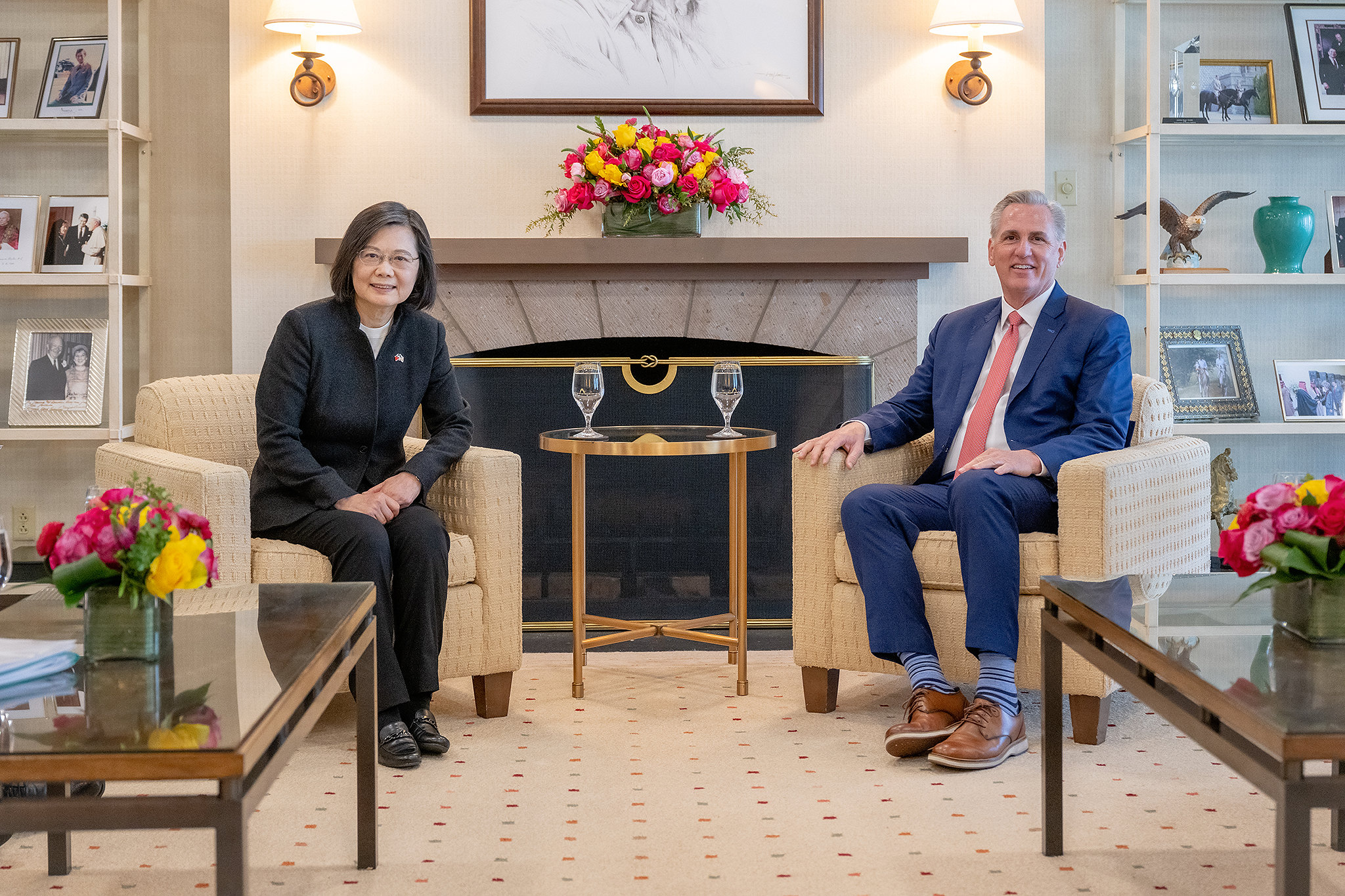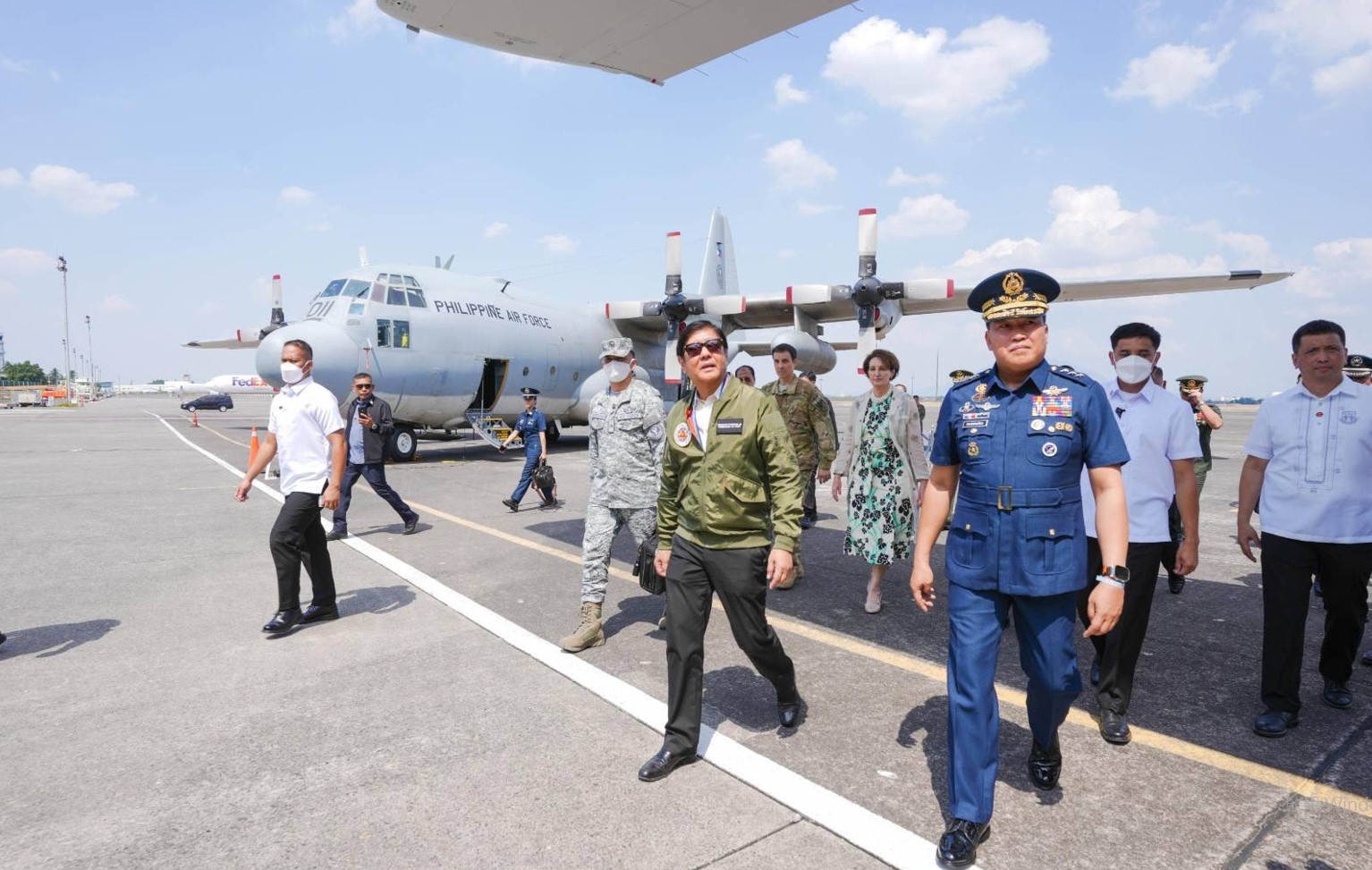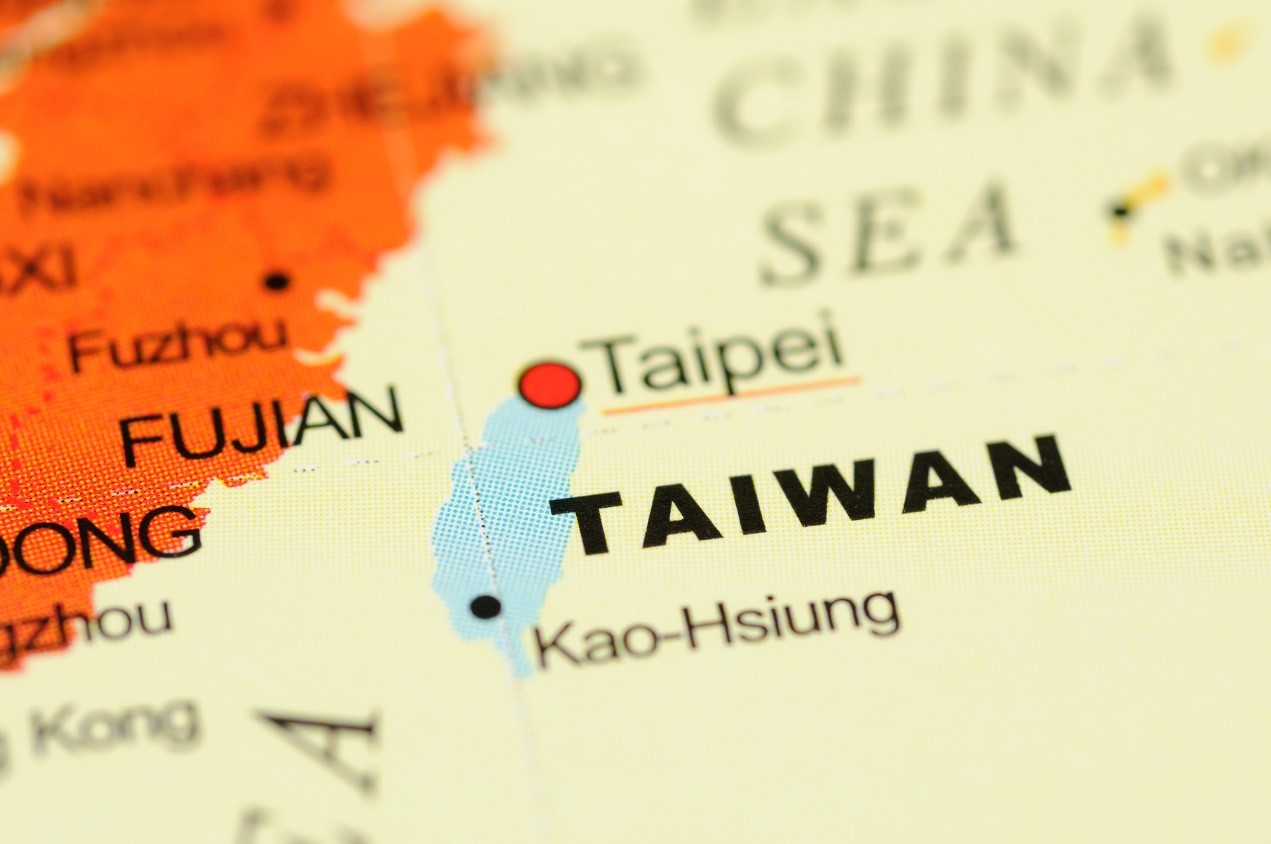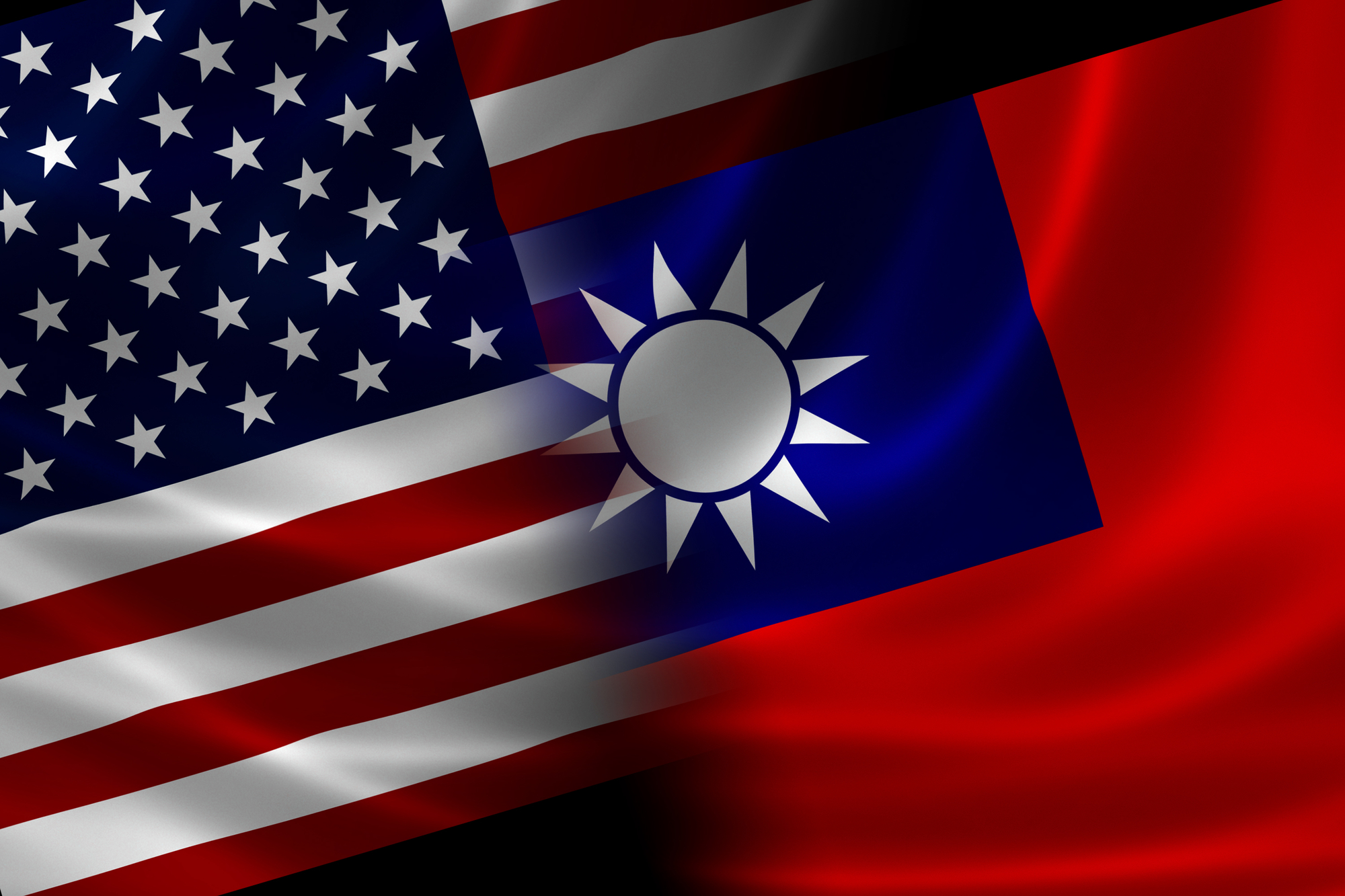During the summit, both sides agreed to build guardrails to prevent competition and conflict from deteriorating into crisis in the Indo-Pacific region, in particular to calm down tensions in the Taiwan Strait. Taiwan is making impressive contributions to the world because of its democracy, political resilience, national defense, and technological innovation. It is impossible for the United States to sit idly and ignore Taiwan’s security. Picture source: 岳月偉, 《中國政府網》, http://www.gov.cn/xinwen/2021-11/16/content_5651268.htm#allContent
Prospects & Perspectives 2021 No. 64
What Taiwan Reads Into the Biden-Xi Virtual Summit
By Cheng-yi Lin
December 8, 2021
After 10 months of testing, twisting and readjusting their policies, the U.S. and the People’s Republic of China (PRC) made a breakthrough when U.S. President Joseph Biden and Chinese leader Xi Jinping held a virtual meeting earlier this month. During the summit, both sides agreed to build guardrails to prevent competition and conflict from deteriorating into crisis in the Indo-Pacific region, in particular to calm down tensions in the Taiwan Strait. Both leaders aimed to create more channels for bilateral dialogue and negotiation on issues such as climate change, the pandemic, energy, and other potential regional flashpoints such as the Korean Peninsula as well as the East and South China Sea.
A new pattern of Sino-American relations may be emerging, one in which summit meetings set the tone for lower-level officials to implement the details, especially on the Chinese side. Xi seeks to create a stable coexistence relationship with the United States even though he does not like the policy of competition and confrontation that characterizes the Biden administration. The virtual summit indicates that in the development of Sino-American relations, the top-down approach could help smooth further impediments to future contacts. It has changed the regular mechanism of bilateral ministerial negotiations through strategic and economic dialogue used during the Bush Jr. and Obama administrations.
The Biden administration is seeking more direct contact with the upper echelons of the political and security apparatus as well as to Chinese officials in charge of foreign affairs, such as Yang Jiechi and Wang Yi. The U.S. always looks for direct contact with the inner circle of the Chinese leadership to grasp the correct understandings of Xi Jinping’s thoughts on China’s internal and external affairs.
Both Xi and Biden tried to refute the new “cold war” mentality that exists in both countries, but scholars and government officials are concerned that the U.S. and the PRC are involved in a cycle of complex competition with each other which could lead to mishap. The new cold war is certainly different from the old one because the PRC poses a comprehensive security threat that transcends that posed by the Soviet Union, not only to the United States, but also to its allies and partners. An underlying cold reality is that with a relatively increasing Chinese power, the Biden administration has learned a precious lesson that it needs to mobilize a coalition of democratic countries to check an expansionist China.
President Biden has made a new encouraging move in the U.S.’s “one China” policy by incorporating the Taiwan Relations Act, the three U.S.-PRC joint Communiqués and Six Assurances all together, a move that will have a long-term impact on Sino-American relations. In 1982, the under-the-table and oral commitments of the Six Assurances were conveyed to Taipei through telephone; only in 2020 did the American Institute in Taiwan render the secret cables public. President Biden’s remarks to Xi regarding the critical dimensions of the U.S.’ “one China” policy are particularly relevant on the issue of the role of the U.S. in cross-Strait relations and Taiwan’s legal status. In addition to assuring Taipei that the U.S. has not altered its position regarding sovereignty over Taiwan, the U.S. will not exert pressure on Taipei to enter negotiations with Beijing and will not play a mediation role between Taipei and Beijing. Like previous U.S. administrations, President Biden has adopted a candid and constructive approach in making his “one China” policy conditional on the peaceful settlement of the cross-Strait dispute. Other democratic states are also advised to understand the detrimental effects of accepting Beijing’s demands on them in accepting its “one China” principle.
Several factors are helping reduce the risks of a cross-Strait crisis erupting. According to Taiwan customs statistics, trade volume between Taiwan and China increased 17% annually from 2016 (US$ 117.7 billion) to 2021 (US$166 billion). About 50% of Taiwanese investment in China is centered in Jiangsu and Zhejiang provinces, and 33% of Taiwan’s investment projects are in the information and electronics industry. Both leaders in Taipei and Beijing hold the positive expectations that trade can help reduce the downward spiral in cross-Strait tensions. While Xi exerts extreme pressure on Taiwan, he has also intentionally avoided igniting an accidental war that nobody wants. President Tsai Ing-wen has insisted on political prudence and a defensive policy by not initiating any unintended tensions or ordering aggressive reactions to intrusions by Chinese fighter jets and bombers into Taiwan’s Air Defense Identification Zone.
China will continue to exert political pressure on the Democratic Progressive Party (DPP)-led government and closely monitor the outcomes of the four referenda on December 18 as well as the local elections in 2022. China’s interpretation of any political development in Taiwan as a sign of moves toward Taiwanese independence has made Beijing deviate from a rational Taiwan policy and further reduced its ability to win the heart and minds of the Taiwanese. China’s refusal to engage in dialogue with the DPP shows that Beijing’s Taiwan policy is doomed to stand still or even move backwards while the Kuomintang is out of power. It will also hinder the healthy progress of cross-Strait relations. Leaders in Beijing may be doing s intentionally, because Taiwan is not an urgent problem that must be solved immediately.
Taiwan must understand that Sino-American relations are the main axis, and that U.S.-Taiwan or cross-Strait relations are adjusted in reaction to developments on the main axis. Taiwan is making impressive contributions to the world because of its democracy, political resilience, national defense, and technological innovation. It is impossible for the United States to sit idly and ignore Taiwan’s security. Although the United States has adopted strategic ambiguity, 33 democratic countries, including members of the European Union, the United States, the United Kingdom, Canada, Australia, Japan, and South Korea, have underscored in various joint statements the importance of security and stability in the Taiwan Strait. Ironically, the internationalization of Taiwan’s security is the most obvious outcome of Chinese warplanes engaging in threatening maneuvers near Taiwan.
Taiwan has exercised effective jurisdiction and sovereignty over Dongsha (Pratas) Island for more than seven decades. The PRC has threatened the airspace of the island through air intrusions and interdiction of Taiwan’s supplies missions. The strategic importance of this island has been underestimated by international observers. Pratas is larger than any other island in the South China Sea. If the PRC created a new status quo by effectively controlling Pratas Island without actual occupation, such as it has done over the Scarborough Shoal, China could extend several its maritime domain by several hundred nautical miles south from its mainland and have more free access to the Bashi Channel and the Taiwan Strait. By then, any action by the People’s Liberation Army’s would have a ripple effect on the security situation in the South China Sea and could lead to the total defeat of the U.S.’ Indo-Pacific strategy.
(Dr. Lin is Research Fellow, Institute of European and American Studies, Academia Sinica)

